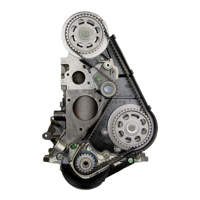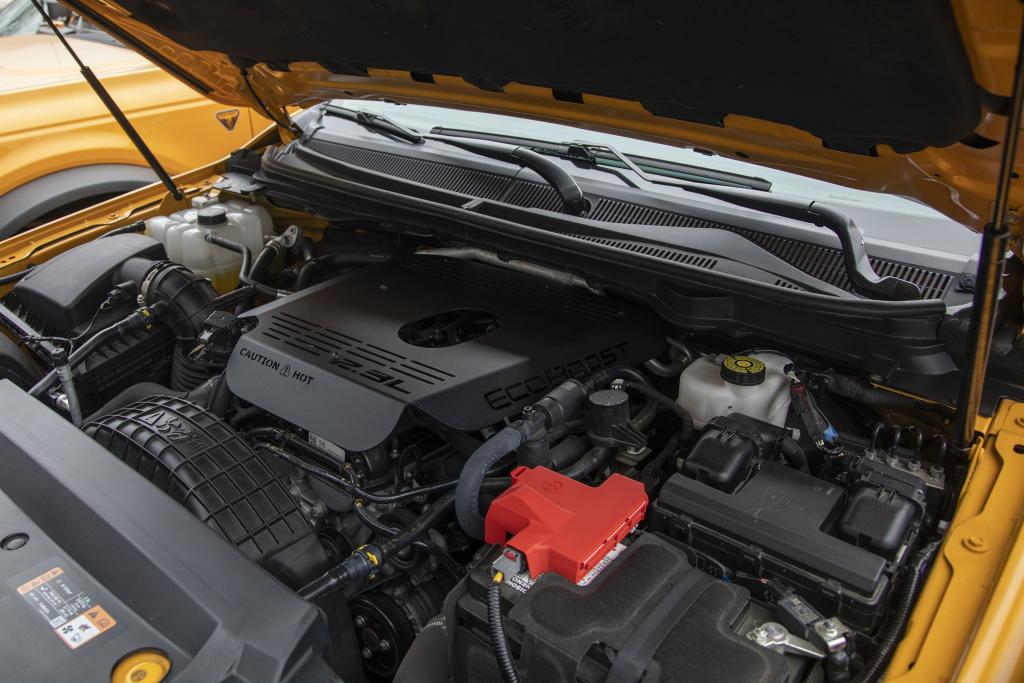Everything You Need to Know About the 2.2 Ford Ranger Engine and Its Performance
Just How to Select the Right Car Engine for Optimum Efficiency and Efficiency
Choosing the proper car engine to accomplish an ideal balance of performance and efficiency necessitates a nuanced understanding of different engine types and their certain qualities (2.2 ford ranger engine). Variables such as engine variation, the number of cylinders, and fuel type play an essential duty in figuring out both power outcome and gas economy.
Understanding Engine Types
When picking a vehicle, one of the most important parts to take into consideration is the engine kind, which works as the heart of the car. The engine kind significantly influences the auto's overall performance, longevity, and viability for your driving requirements. There are primarily 3 engine types to consider: internal combustion engines (ICE), hybrid engines, and electric engines.
Inner burning engines stay one of the most typical, operating fuel or diesel. They are understood for their power and velocity, making them appropriate for performance-oriented cars. They may drop brief in fuel performance and environmental influence.
Hybrid engines incorporate an interior combustion engine with an electrical motor, using a balance between performance and gas economic climate. They are significantly preferred for motorists seeking reduced emissions while still providing adequate power.
Electric engines, powered completely by batteries, are getting traction due to their ecological advantages and lower running prices. They supply instant torque and a peaceful driving experience, making them perfect for city commuting.

Performance vs. Efficiency
Selecting the best engine type includes considering the trade-offs between efficiency and effectiveness. Performance generally describes exactly how well an engine can provide power and velocity, which is often associated with bigger displacement engines or those with turbocharging capabilities. These engines generally provide exhilarating driving experiences and fast action times, making them prominent among fanatics.
On the various other hand, effectiveness concentrates on gas economic situation and reduced discharges. Smaller sized engines, particularly those geared up with innovative modern technologies such as straight fuel injection and variable valve timing, tend to deliver far better miles per gallon and lowered carbon impacts. While these engines might compromise some power compared to their larger equivalents, they commonly excel in everyday driving scenarios where high efficiency is not always essential.
Ultimately, the choice in between efficiency and performance rest on individual concerns. A vehicle driver who values perky driving may focus on a high-performance engine, while a person looking for cost-effective commuting might lean towards a reliable alternative. Comprehending these compromises is critical for making an informed choice that aligns with your driving demands and way of living, making sure that the selected engine type matches your expectations for both performance and performance.
Trick Specifications to Take Into Consideration
Comprehending key specs is necessary for making a notified choice concerning the best vehicle engine. When choosing an engine, numerous critical variables warrant consideration to make certain optimum efficiency and performance.
It suggests the total quantity of the engine's cylinders and generally associates with power result; bigger displacements often yield even more power. Engines with even more cylinders can offer smoother operation and higher power, while smaller sized arrangements can boost fuel effectiveness.
In addition, the engine's setup, whether inline, V-type, or rotary, affects the general style and performance attributes of the lorry - 2.2 ford ranger engine. Turbocharging and turbo charging technologies should additionally be reviewed; these boost an engine's power outcome without dramatically enhancing its dimension, hence enhancing effectiveness
Gas kind is one more crucial factor to consider, as it impacts both efficiency and costs. Finally, the engine's compression proportion affects effectiveness and power distribution; a higher proportion usually causes far better effectiveness, but might call for premium gas. By meticulously assessing these specifications, you can pick an engine that lines up with your efficiency and effectiveness goals.
Evaluating Driving Demands
Evaluating driving demands is a basic action in figuring out the best car engine for your way of life and usage patterns. Begin by evaluating your daily driving behaviors, consisting of the regularity and duration of journeys. If your driving largely includes brief commutes in metropolitan settings, a smaller sized engine with Website great fuel effectiveness might be sufficient. Conversely, if you often take on long-distance trips or require towing capabilities, a much more effective engine may be needed.
Consider the surface you normally browse. Hilly or rugged landscapes might demand an engine with higher torque for far better performance. Furthermore, mirror on passenger and freight requirements; larger families or those who transport goods might gain from cars with increased power and ability.
It's likewise vital to assess your fuel preferences. Diesel motor usually offer remarkable torque and fuel economic climate for much heavier automobiles, while fuel engines may supply a smoother and quieter experience. Finally, consider environmental factors to consider, as crossbreed or electric engines can offer an extra lasting choice without sacrificing efficiency. By extensively recognizing your driving needs, you can make an enlightened decision that lines up with both performance expectations and effectiveness objectives.
Future Fads in Engine Technology
As the auto industry continues to advance, advancements in engine technology are leading the way for extra efficient and lasting driving experiences. One substantial pattern is the change toward electrification, with hybrid and totally electrical powertrains getting importance. Car manufacturers are investing heavily in battery modern technology to boost power density and decrease charging times, inevitably enhancing the functionality of electrical lorries (EVs)
Another emerging trend is the growth of hydrogen gas cell engines. 2.2 ford ranger engine. These systems provide the potential for zero-emission driving while giving refueling times comparable to standard gasoline engines. In addition, improvements in burning modern technology, such as variable compression ratios and enhanced turbocharging, are maximizing typical internal combustion engines for better efficiency and performance
Digital integration is also a critical facet of future engine modern technology. The application of expert system and maker learning enables real-time information evaluation, making it possible for smarter engine monitoring systems that adapt to driving conditions and enhance fuel efficiency.

Conclusion
In final thought, picking the suitable automobile engine demands a thorough analysis of numerous elements, including engine type, performance demands, and performance objectives. By understanding the differences between various engine types and taking into consideration vital specifications, people can straighten their options click here to find out more with certain driving needs. As advancements read what he said in engine innovation continue to emerge, staying informed regarding future fads will additionally improve decision-making, inevitably bring about a vehicle that stabilizes efficiency and gas effectiveness efficiently.
Choosing the suitable vehicle engine to achieve an optimum equilibrium of efficiency and performance demands a nuanced understanding of different engine types and their specific attributes. There are largely 3 engine types to consider: internal burning engines (ICE), hybrid engines, and electrical engines.
Performance normally refers to how well an engine can deliver power and velocity, which is often connected with larger displacement engines or those with turbocharging abilities. Diesel engines frequently use exceptional torque and fuel economic climate for much heavier cars, while gasoline engines might provide a smoother and quieter trip.In verdict, selecting the ideal cars and truck engine necessitates a comprehensive assessment of numerous elements, including engine kind, performance demands, and efficiency objectives.